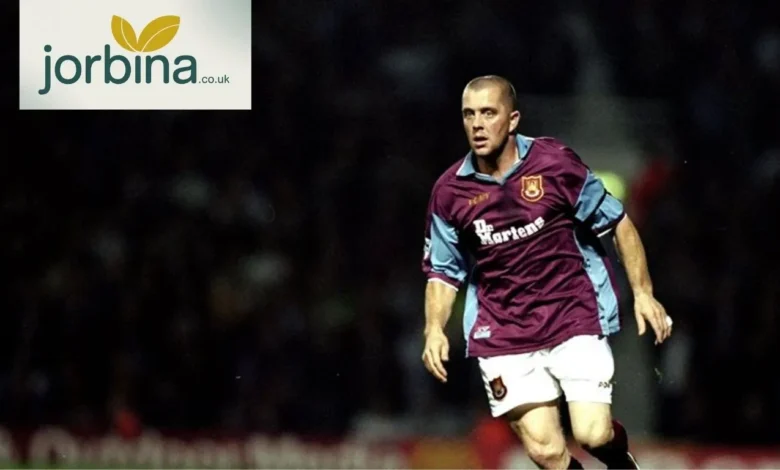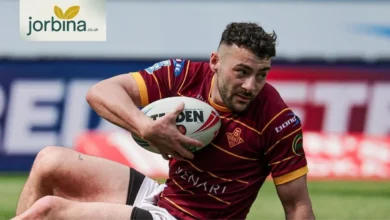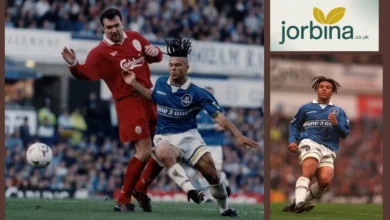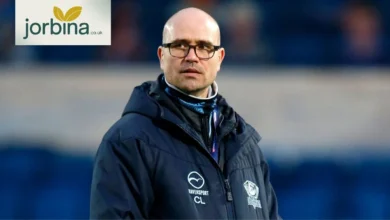What Julian Dicks Taught Football About Fearlessness

What makes a player unforgettable?
Is it trophies, skill, or sheer personality? Maybe it’s something simpler, a willingness to play without fear. Julian Dicks was one of those rare players who didn’t just play football; he lived it in full contact, body and soul. He wasn’t the smoothest or flashiest, but he was real. Every tackle, every argument, every roar at Upton Park came from a man who refused to step back.
This is the story of Julian Dicks, the lessons he left behind, the people who shaped him, and why his kind of fearlessness is something modern football still needs.
From Bristol Beginnings to Birmingham Grit
Julian Andrew Dicks was born in Bristol in 1968. Like most kids then, football wasn’t just a hobby; it was a way of life. He joined Birmingham City’s youth system, a place that valued hard work more than glamour. Coaches noticed early that Dicks had a natural edge. He wasn’t afraid of challenges. He went in hard, trained harder, and didn’t overthink things.
That rawness caught attention, and soon enough, he found himself under the watchful eye of John Lyall, the legendary manager who would become a key influence later on. Lyall believed players like Dicks, bold, committed, unpredictable, brought something pure to the game. He saw past the roughness and focused on the heart behind it.
The West Ham Years: Where Fire Met Iron
When Dicks joined West Ham United in 1988, he wasn’t there to blend in. He was there to leave a mark, and he did that from his very first season. Upton Park was full of characters, and Dicks fit right in. He was strong, sharp, and utterly unafraid. His tackles were brutal, but they came from a place of intent, not showmanship. He played like every touch mattered.
The fans loved it. In a club built on working-class spirit, Dicks embodied everything they stood for: hard work, honesty, and grit. He became the heartbeat of the team, scoring thunderous free kicks, crunching into challenges, and taking penalties like a man who never doubted himself for a second.
That’s when he earned the nickname “The Terminator.” It wasn’t about violence; it was about presence. He terrified strikers not because he was reckless but because he was relentless. Fearlessness, in his case, meant total commitment, body first, hesitation last.
Liverpool: A Lesson in Knowing Where You Belong
In 1993, Dicks moved to Liverpool. For any player, that should have been the dream: a giant club with history, ambition, and expectation. But not every story works out neatly. Dicks struggled to find rhythm there. Injuries slowed him down, and the style didn’t suit his personality. Liverpool was a different environment, more polished, more political, less forgiving.
He could have stayed and faded quietly, but that wasn’t him. He realized that being fearless isn’t just about charging into tackles. It’s about admitting when something isn’t working. So he went back to West Ham, not as a step down, but as a return to authenticity. That move said more about his character than any highlight reel could.
Back Where He Belonged
When he came back to West Ham, he wasn’t just another player. He was a leader. Injuries had changed his pace but not his fight. He was still fierce, still vocal, and still the standard others looked up to. Younger players learned that toughness isn’t about shouting; it’s about standing tall when things fall apart.
He played through pain. He missed games and came back stronger. Every time he wore the claret and blue, it was obvious that this was his home. Fans saw themselves in him, ordinary people who worked hard, took hits, and got up again. That connection between player and crowd is what built his legend.
The Men Who Shaped Him: Bonds, Potts, Ward, and Ruddock
Football isn’t a solo act. Every player is shaped by the people around them. For Dicks, a few names stand out.
Billy Bonds was a massive influence. Bonds was tough as nails but calm in chaos. He showed Dicks what leadership looked like when the game turned ugly. Bonds had been through it all, promotions, relegations, and pressure, and he carried himself with quiet pride.
Steve Potts taught another lesson, one about consistency. Potts wasn’t flashy, but he was reliable. Week after week, he performed. That kind of dependability rubbed off. Dicks saw that fearlessness isn’t only about aggression; sometimes it’s about never letting standards slip.
Mark Ward, a teammate with flair and edge, brought energy to the dressing room. Ward understood that you could mix style with steel. Dicks admired that balance.
Then there was Neil “Razor” Ruddock, the only man who could match Dicks tackle for tackle. When they faced each other, sparks flew, but there was mutual respect. Ruddock represented the same school of football, hard men who never faked confidence. Their clashes were fierce, but both understood that physicality and passion were part of the game’s honesty.
The Reputation: Loved and Hated, But Always Respected
The media had a complicated relationship with Dicks. BBC Football and BBC Sport often covered his disciplinary record, his red cards, and his temper. But beneath that surface, journalists knew there was more. They saw that he wasn’t a dirty player; he was a committed one. Every foul came from a will to win, not malice.
Fans defended him fiercely. To them, he represented what football used to be: heart first, money second. When he was sent off, they booed the referee, not him. When he scored, they sang his name like he’d been one of them all his life. And in a way, he was. Julian Dicks was the kind of player every supporter wished they could be: fearless, flawed, but full of fight.
Life After the Final Whistle
Retirement hits hard for players who live the game the way Dicks did. Many fade away quietly. He didn’t. After hanging up his boots, he turned to coaching. He worked at several clubs, including Grays Athletic, Wivenhoe Town, and eventually Heybridge Swifts.
At each stop, he brought that same intensity. His players respected him because he spoke from experience, not from theory. He told them to play with conviction. He didn’t ask for perfection, just honesty. Coaching smaller clubs also showed another form of fearlessness: starting again without glamour, building from the bottom, staying humble enough to teach.
Later, he joined West Ham’s women’s team as manager, again proving that courage isn’t just physical. Taking on a role outside the spotlight showed growth. It showed that fearlessness can evolve into mentorship.
Lessons From a Life on the Pitch
So what did Julian Dicks really teach football about fearlessness? A few things stand out.
First, play without fear of failure. Mistakes happen. What matters is how you respond. Dicks never hid after a bad game. He faced criticism head-on.
Second, loyalty counts. In a sport now driven by transfers and image, he stayed true to where he felt he belonged. West Ham wasn’t perfect, but it was home. That sense of belonging gave him strength.
Third, toughness is more than muscle. It’s mental. It’s about handling pressure, owning up when you’re wrong, and still showing up next week ready to fight again.
Finally, never lose authenticity. Dicks didn’t try to be what he wasn’t. He wasn’t polished, but he was genuine. Fans can tell the difference.
Why Fearlessness Still Matters
Football today looks different, faster, more technical, more commercial. But the spirit that made players like Dicks, Bonds, and Ruddock stand out hasn’t gone out of style. Every team still needs that one player who refuses to shrink under pressure. Every young defender still needs to learn that bravery is about more than sliding tackles; it’s about standing for something.
You can see echoes of that fearlessness in players who speak up, who play through pain, who fight for teammates even when the crowd turns cold. Those traits never lose relevance. They’re the foundation of team culture, the soul of competition.
A Legacy Beyond the Highlights
Today, when you look back at clips of Julian Dicks on BBC Sport, what stands out isn’t just the aggression. It’s the intensity of purpose. Every movement had intent. Every match felt personal. He didn’t just defend the goal; he defended what the club meant to its people.
His story isn’t about being perfect or universally loved. It’s about staying true to yourself when everyone tells you to tone it down. That’s rare in any profession. In football, it’s gold.
Fearlessness, as Dicks showed, isn’t about never feeling fear. It’s about feeling it and charging forward anyway. That mindset turned a Bristol boy into a West Ham legend. It made him respected by men like Billy Bonds, Steve Potts, Neil Ruddock, and Mark Ward. And it’s why, decades later, fans still chant his name.
The Final Word
Julian Dicks played football like life itself, rough, passionate, unfiltered. He broke bones, took a stick, and kept coming back. He fought for clubs that didn’t always win but always mattered. He learned from mentors like John Lyall and Billy Bonds, stood shoulder to shoulder with players like Steve Potts and Neil Ruddock, and left behind lessons that outlast any highlight reel.
The message is simple: Be fearless. Not reckless, not arrogant, fearless. Step in. Stand tall. Take the hit. Learn. Return. That’s what Julian Dicks taught football, and it’s what football will always need.



